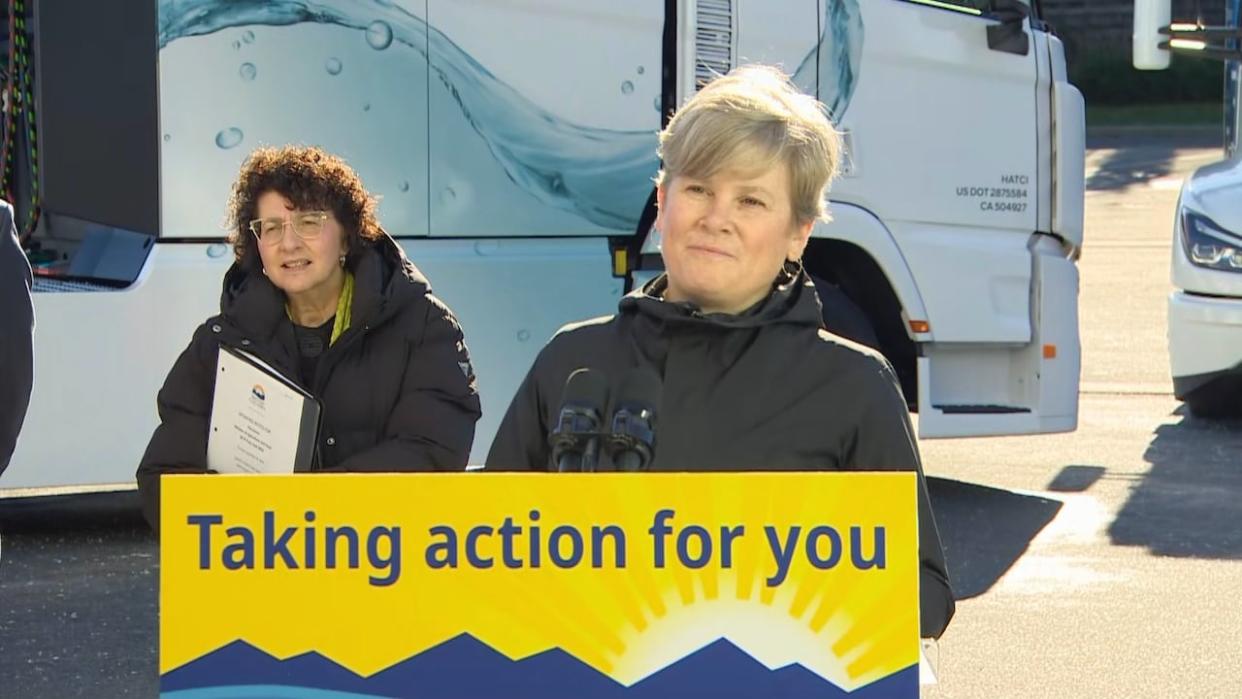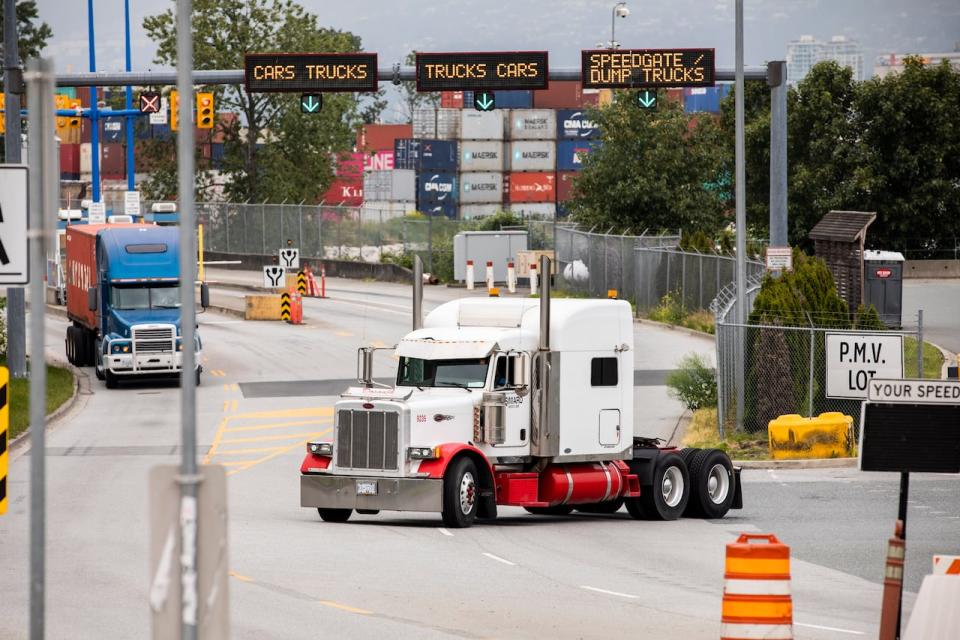B.C. to spend $16.5M to get 6 hydrogen-powered transport trucks on the road

The province has announced a pilot project that could pave the way for a reduction in emissions from a sector that contributes 25 per cent of British Columbia's greenhouse gas emissions.
On Thursday in Abbotsford, Minister of Energy, Mines and Low Carbon Innovation Josie Osborne and Minister of Environment and Climate Change Strategy George Heyman, along with local politicians and industry leaders, announced the B.C. Pilot Hydrogen Truck Project.
It will have B.C.-based hydrogen energy company HTEC acquire six different heavy-duty fuel-cell trucks and upgrade a hydrogen-fuelling station in Tsawwassen along with a maintenance facility in Abbotsford.
The plan is to have the six vehicles actively hauling goods around B.C. sometime next year and by 2026 show that they are a viable alternative to conventional, diesel-fuel powered transport trucks.
The province says shipping and hauling accounts for 60 per cent of transport emissions.
The hydrogen fuel initiative is meant to help meet goals under the province's CleanBC plan, which aims to lower climate-changing emissions by 40 per cent by 2030.
"Hydrogen-powered heavy-duty trucks are a key part of our climate plan to steeply cut both carbon emissions and air pollution," said Heyman on Thursday.

Container transport trucks are seen at the entrance to the Port of Vancouver in May 2019. (Ben Nelms/CBC)
The province launched Canada's first hydrogen policy in 2021.
The strategy provides a pathway for industry and innovators to help achieve net-zero carbon emissions by 2050.
Goals include establishing regional hydrogen hubs to supply fuel to industries and consumers, while increasing the numbers of medium and heavy-duty vehicles powered by hydrogen on highways and at industrial sites.
Currently hydrogen-powered transport vehicles cost up to four times more than conventional diesel-powered vehicles, said industry leaders at the news event in Abbotsford.
Continued investment promised
Scaling up the use of hydrogen-powered transport trucks in the province will also require increasing fuelling stations. HTEC owns five stations: three in the Lower Mainland, one on Vancouver Island and one in Kelowna.
Three years ago, the province announced $10 million to build 10 hydrogen-fuelling stations across B.C.
On Thursday, Osborne said it would spend more to further increase infrastructure and help companies adopt the technology.
"We'll continue to be investing in this," she said.
Industry watchers, like Eric Doherty, a transportation and energy consultant with Ecopath Planning in Victoria, says hydrogen-powered transportation solutions could end up not being as efficient or cost-effective as other alternative energies.
He pointed to a showcase hydrogen fuel-cell project from the 2010 Olympics worth $90 million, which was eventually scrapped due to the cost of running the 20 vehicles.
"Hydrogen is being touted as being better than batteries, than other power sources, when a lot of data is showing that hydrogen is very expensive and an inefficient way of producing electricity in vehicles," Doherty said.
He said the technology could end up being a good fit in remote locations rather than places like B.C.'s Lower Mainland, where overhead charging wires for vehicles with electric batteries could be more efficiently used.


